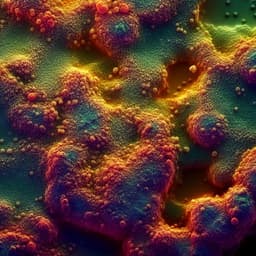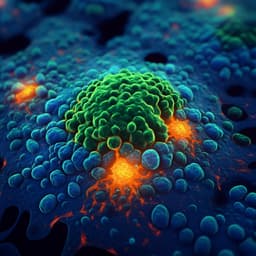
Environmental Studies and Forestry
Advanced sludge treatment affects extracellular polymeric substances to improve activated sludge dewatering
E. Neyens, J. Baeyens, et al.
Explore the innovative findings from researchers Elisabeth Neyens, Jan Baeyens, Raf Dewil, and Bart De heyder on wastewater sludge management. This paper highlights how advanced sludge treatment processes enhance dewaterability by tackling the challenges posed by extracellular polymeric substances, ultimately leading to improved flocculation and reduced water retention.
~3 min • Beginner • English
Related Publications
Explore these studies to deepen your understanding of the subject.







